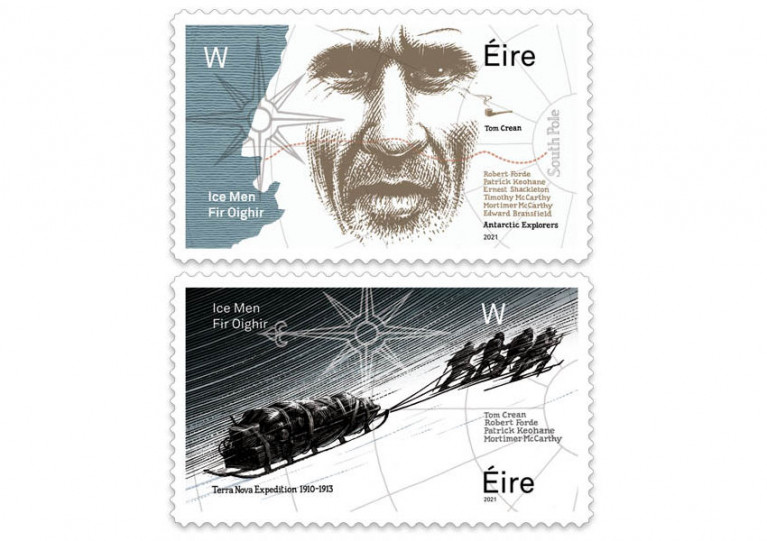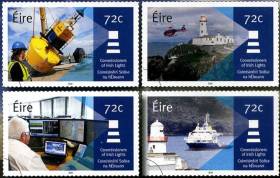Displaying items by tag: An Post
Tom Crean Features In New Stamp Set Celebrating Ireland’s Role in Epic Antarctic Expeditions
An Post has issued a new set of four stamps celebrating eight Irish men who played a significant role in the epic Antarctic expeditions of the 1800s and early 1900s.
Irish men were at the heart of the pioneering expeditions to Antarctica. Co Kildare-born Ernest Shackleton and Tom Crean, from Annascaul in Co Kerry, are two of the better known explorers, and have achieved worldwide recognition for their bravery and perseverance.
The other six men featured on the stamps, five from Cork, are less well known but no less important in the contributions they made to Antarctic exploration.
They include Edward Bransfield (from Ballincurra); Patrick Keohane (Courtmacsherry); Robert Forde (Bandon), brothers Mortimer and Tim McCarthy (Kinsale) and Francis Crozier (Banbridge, Co Down).
Leading Irish illustrator David Rooney explained how he wanted the stamps to shine a light on the impact Irish men had on Antarctic exploration.
“Like most people I was aware of the Shackleton and Crean expeditions, it was fascinating to delve into the adventures of a figure like Francis Crozier, who set out in 1839 as commander of HMS Terror on the Ross expedition,” he said.
“Crozier, his ship and all of his crew were subsequently lost, along with Sir John Franklin, on their ill-fated search for the North West Passage in the Arctic just a few years later.”
The four stamps, two for national postage and two for international, and a First Day Cover envelope are available at selected post offices and anpost.com/shop.
New Stamps Commemorate Irish Lights
#IrishLights - An Post has today (Thursday 6 October) a set of stamps to commemorate the Commissioners of Irish Lights.
There are four stamps in the collection designed by Vermillion Design, featuring Irish Lights staff working on a buoy; a helicopter at work near Fanad lighthouse in Donegal; the technology Irish Lights offers to sea users; and the ILV Granuaile, the service’s multifunctional vessel.
Each highlights a different aspect of the agency’s navigation and maritime services which go beyond the many lighthouses in its coastal network, including some 4,000 local navigation aids such a buoys and marks on dangerous wrecks outside harbour areas.
The stamp set is available from post offices nationwide or online from the Irish Stamps website.































































